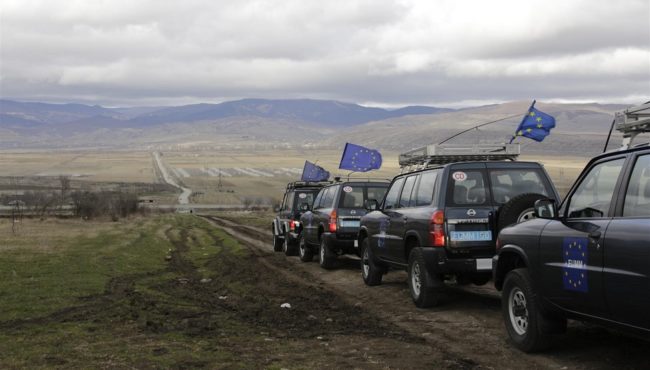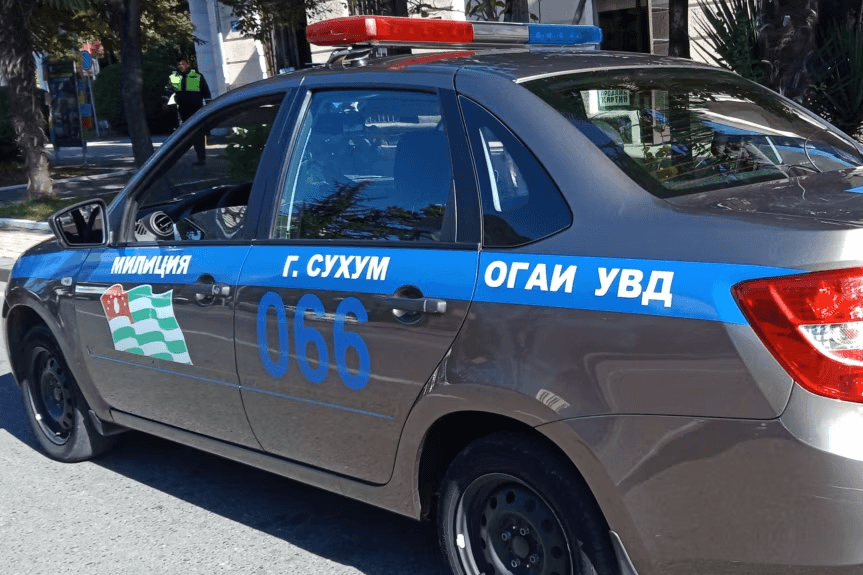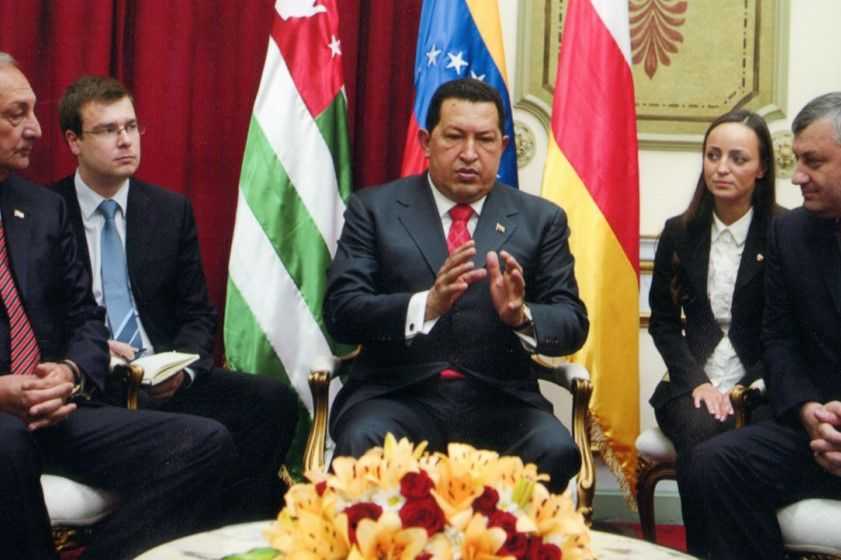Analysis | Georgians are increasingly unaware of what the European Union Monitoring Mission does



 As much as 81% of the population of Georgia doesn’t know what the European Union Monitoring Mission (EUMM) does, according to the 2017 Knowledge of and Attitudes towards the European Union in Georgia survey funded by the Europe Foundation and implemented by CRRC-Georgia. This lack of knowledge has increased over time, as has the prevalence of incorrect information about the EUMM’s mission. This represents a missed opportunity for the EU’s communications in Georgia.
As much as 81% of the population of Georgia doesn’t know what the European Union Monitoring Mission (EUMM) does, according to the 2017 Knowledge of and Attitudes towards the European Union in Georgia survey funded by the Europe Foundation and implemented by CRRC-Georgia. This lack of knowledge has increased over time, as has the prevalence of incorrect information about the EUMM’s mission. This represents a missed opportunity for the EU’s communications in Georgia.
On the survey, respondents were asked, ‘What does the European Union Monitoring Mission do in Georgia?’ A large plurality of the population (41%) reported they did not know what the EUMM does. The second most common response (25%) was ‘supports the implementation of democratic and market oriented reforms’, an incorrect answer. The third most common response (19%) was ‘supports the stabilisation of the situation in the areas affected by the August 2008 war’, the EUMM’s actual mission.
The share of the public aware of what the EUMM does has declined over time, in 2009, 39% of the population knew what the EUMM did. This decline may stem from the relatively high salience of the Monitoring Mission in the years immediately following the 2008 August War with Russia, although no data exists which would confirm this.
Besides the decline in knowledge of what the EUMM does, inaccurate information about the organisation has become more prevalent. While only 24% of the public gave an inaccurate answer to the question in 2009, 38% did in 2017. Notably, there was a large increase in don’t know responses in 2015 and a sizeable decline in 2017. Rather than an increase in correct responses in 2017, however, the data suggests that a lack of knowledge was replaced by incorrect information.
The lack of knowledge about the EUMM is most pronounced in ethnic minority settlements, with only 2% of individuals in minority communities correctly responding to the question. The lack of knowledge in minority settlements should come as no surprise given that surveys in these communities regularly have high rates of don’t know responses.
In contrast, those living in rural settlements with a predominantly ethnic Georgian population provide the correct response most often. The fact that the rural population is more informed than urban populations may stem from the EUMM’s rural presence. While the organisation has offices in four urban settlements — Tbilisi, Mtskheta, Zugdidi, and Gori — they regularly patrol the rural areas surrounding the administrative boundary lines with Abkhazia and South Ossetia.
Although the public is increasingly unaware of what the EUMM does, about two thirds of people who provided incorrect answers to the question about the EUMM’s mission would like to have more information about the EU. About a quarter even want information specifically about the EU’s role in resolving Georgia’s territorial conflicts.
The lack of knowledge of what the European Union Monitoring Mission does in Georgia may represent a missed opportunity for the EU. While no data is available about the attitudes of people who have had contact with the EUMM, previous research in Georgia has suggested that individuals contacted by NGOs report greater trust in them. The EUMM, given its public service mission, may receive a comparable boost from contact with the public. Hence, the EU should consider increasing its outreach and communications related to the EUMM.
This article was written by Dustin Gilbreath, a Policy Analyst at CRRC-Georgia. The views presented in this article are the author’s alone and do not necessarily reflect the views of CRRC-Georgia, Europe Foundation, or OC Media.








